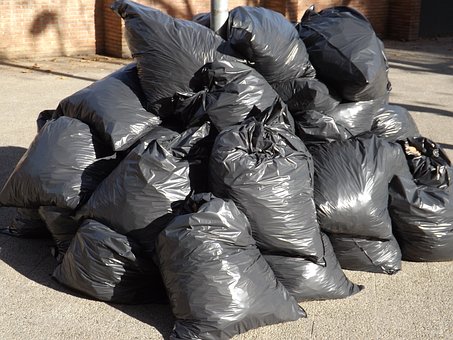Welcome to KDS Environmental
Reliability
100%
Affordability
100%
Professionalism
100%
Reputation
100%
 It is no secret that the amount of household waste produced is increasing year after year at a disconcerting rate, and federal governments are under pressure to expand existing landfills or construct brand-new ones to accommodate the waste that is being produced.
It is no secret that the amount of household waste produced is increasing year after year at a disconcerting rate, and federal governments are under pressure to expand existing landfills or construct brand-new ones to accommodate the waste that is being produced.
What is Hazardous Household Waste?
Household waste is leftover from household products. Dangerous household waste are household products which contain chemicals that have the potential to impact plants, the health of human beings and animals and are detrimental to the environment when handled improperly
Incorrect management of household waste has the potential to be really detrimental to the environment, individuals, and animals. What many of us may not understand is that many of those common household products contain destructive, harmful, or flammable chemicals that can be hazardous to the environment if not handled or managed effectively.
Dangerous household waste should not be dealt with in the same way as regular waste. For instance, fuel can be buried in the ground, can impact rivers, and find its way into drinking water. The hydrocarbons in motor oils or pesticides have the potential to bio-accumulate in freshwater fishes and can find its way in the food cycle. Burning contaminated materials results in the release of harmful chemicals and fumes in the air. When released into the environment, these chemicals are dispersed over big locations, thus impacting the health of persons over a broader area.
A few of these chemicals remain in the systems of plants and animals for a long time and may enter the food cycle when the impacted plants and animals are consumed.
 Bioaccumulation of hazardous substances in the systems of plants, animals, and human beings has the potential to impact their reproductive lives, development, impair the function of numerous organs such as the liver and kidneys, impact the functioning of the central nervous systems and immune systems of human and animals and some have been listed as known carcinogens.
Bioaccumulation of hazardous substances in the systems of plants, animals, and human beings has the potential to impact their reproductive lives, development, impair the function of numerous organs such as the liver and kidneys, impact the functioning of the central nervous systems and immune systems of human and animals and some have been listed as known carcinogens.
How Can You Tell a Product is Hazardous?
Check out the labels of products. In China Grove and other parts of the country, labels are required for all products. These should provide info on the constituents of the products, including symbols and words, to suggest the threat to animals, human beings, and the environment if mishandled.
How To Tell If Products Are Hazardous?
Always read the label of products in your household and make it a routine of reading the labels of a product before deciding to buy them.
What Can You Do to Manage Hazardous Waste?
Purchase Eco-friendly Products – Experts concur that the best way to control waste is to not produce it in the first place. You can start by avoiding the purchase of products that contain chemicals that are hazardous to human beings, animals, and the environment. Purchase those products that are naturally degradable or friendly to the environment.
Safe Product Storage – Ensure that hazardous products are stored in a safe place, that their containers are not damaged, do not have any leaks to minimize the threat of infecting water sources, land, human beings, animals, plants, and the environment. Ensure that destructive products like acids are kept in separate locations from other hazardous products.
Check products regularly to ensure that there are no leaks and damaged lids or bulging sides.
Always store products in their original containers to prevent unintentional usage.
Ensure that these products are kept in a place where children and animals have no access to them.
Disposal of Products – Disposal of products should always be the last resort. Why? Because there are no safe methods of disposing of contaminated materials. You can prevent the issue of contaminated materials disposal by either choosing naturally degradable products, recycling the product, giving the excess products to friends, next-door neighbors, or family or purchasing smaller sized volumes of the product.
 If, nevertheless, disposal is inevitable, then you should dispose of the waste in the manner prescribed on the label.
If, nevertheless, disposal is inevitable, then you should dispose of the waste in the manner prescribed on the label.
Although there are laws to manage the handling and use of big quantities of contaminated materials, the existence of laws to manage the common small quantities produced at the household is non-existent. For this reason, the duty for the management of contaminated materials falls squarely on the shoulders of the contaminated materials generators.
Protection of the environment can only happen when you play a role in finding creative ways to re-use, recycle, or minimize waste. This is necessary if we are to secure the environment and health of future generations. Keep In Mind That Waste Management is Your Business, My Business, Our Business.
if you are in China Grove or Boldtville, Martinez, Sayers, Kirby, Salado Junction, Hilltop, Lone Oak, Adkins, Bergs Mill, Southton, call us now!
We are experts in environmental clean-up, and we can help you with eradicating dangerous items in your home. Our number one goal is to ensure that the environment is safe for everyone to live in, and your health is protected. Get in touch with us today and get a free, no-obligation quote.
We are the best eco-friendly company you can trust in Boldtville, Martinez, Sayers, Kirby, Salado Junction, Hilltop, Lone Oak, Adkins, Bergs Mill, Southton and China Grove.